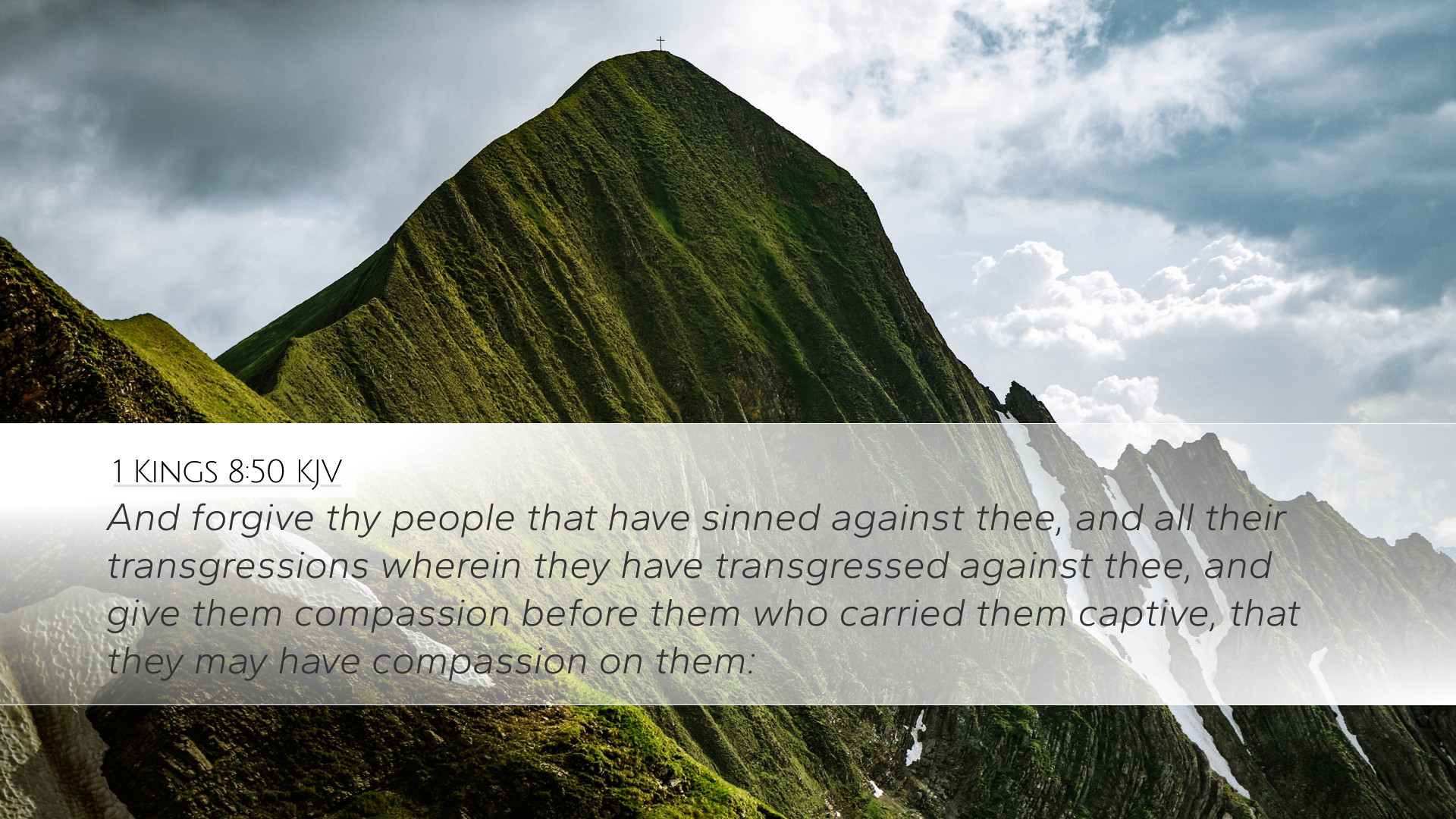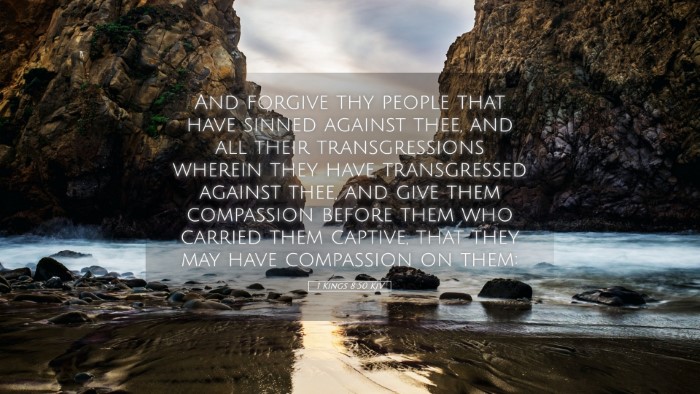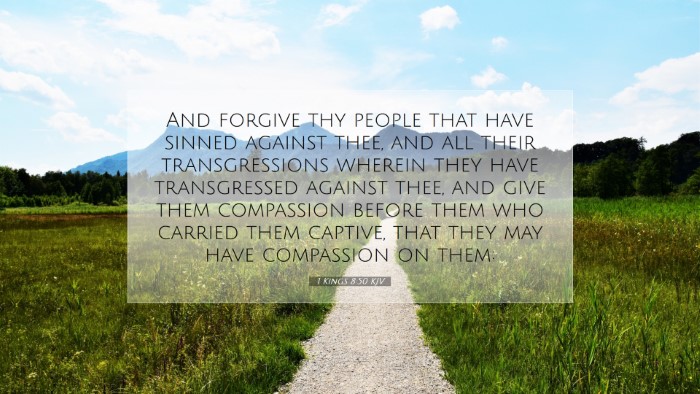Commentary on 1 Kings 8:50
Bible Verse: "And forgive thy people that have sinned against thee, and all their transgressions wherein they have transgressed against thee, and give them compassion before them who carried them captive, that they may have compassion on them." (1 Kings 8:50)
Introduction
This verse lies within the context of King Solomon's prayer of dedication for the temple he built in Jerusalem. As Solomon addresses the Lord, he acknowledges Israel’s history of sin and disobedience. The verse expresses a plea for divine forgiveness and compassion, not only for the people who have strayed from God's path but also towards those who have taken them captive. This dual emphasis on sin and the hope for mercy is critical to understanding the broader theological themes unfolding in this passage.
Contextual Background
Solomon, upon completing the temple, publicly prays before the gathered assembly, placing Israel's sinners in the posture of repentance. This prayer acknowledges past transgressions while confidently seeking God’s forgiveness and understanding. The historical context reveals that Israel has faced conquests and exiles due to their unfaithfulness, marking a need for divine intervention and restoration.
Theological Implications
- Forgiveness: The plea for forgiveness indicates a fundamental aspect of the Old Testament covenant relationship between God and Israel. As noted by Matthew Henry, forgiveness is not merely an act of grace, but a vital process of restoration. It highlights God’s willingness to renew His people despite their failings.
- Sin and Transgression: The repetition of "sinned against Thee" and "transgressions" signifies the serious nature of the people's disobedience. Albert Barnes emphasizes that recognizing one's sin is a precursor to genuine repentance and forgiveness. It implies an acknowledgment of guilt that must precede divine mercy.
- Compassion for Captives: The second part of the verse importantly appeals for compassion towards those who have taken Israel captive. Adam Clarke elaborates that this reflects a remarkable depth of understanding of mercy. It underscores a call for relational healing between oppressors and the oppressed, illustrating a kingdom perspective where reconciliation is paramount.
Pastoral Applications
For pastors and leaders in the faith community, this verse offers several key applications:
- Encouraging Repentance: When leading congregations, emphasize the importance of recognizing sin. Solomon's prayer serves as a model for congregational prayers of repentance, illuminating the necessity of confession as part of communal worship.
- Promoting Forgiveness: The need for Christians to practice forgiveness in their relationships is underscored. Matthew Henry posits that forgiveness restores broken relationships and reflects God's character; therefore, churches should cultivate an atmosphere of grace.
- Addressing Social Justice: The reference to compassion for captors opens a dialogue about social justice. Faith leaders can use this principle to advocate for mercy and understanding across social divides, fostering dialogues that prioritize healing and restoration.
Conclusion
1 Kings 8:50 encapsulates profound elements of sin, forgiveness, and mercy. The heart of this verse serves as a bridge connecting divine grace with human shortcomings. As we reflect on this prayer from Solomon, let us be reminded of our own need for forgiveness and our obligation to extend that same mercy to others. This passage invites a reflective posture that encourages an ongoing relationship with God, rooted in honesty, humility, and hope.


